
Ahmed Wali Karzai may have been dogged by allegations of links to the drugs trade and corruption, but his shock killing at home by his own head of security deprives NATO and the government of their main ally in the volatile south.
Analysts have warned that his death creates a dangerous power vacuum in Kandahar, the birthplace of the Taliban militia, where rivals are expected to jockey for influence as the US-led NATO mission starts to withdraw troops.
Underlining fears of increased insecurity, two bombs were found along the path of the funeral cortege from Kandahar city to Dand district, where the younger Karzai was buried in the family plot.
NATO troops detonated both in controlled explosions, police said.
The governor of neighbouring Helmand province, another bitter battleground against the Taliban, escaped unhurt with his provincial intelligence chief when a bomb attack targeted their convoy en route to the funeral.
At the end of the funeral Karzai renewed his call on the Taliban to make peace, despite the militia's claim to have recruited the assassin.
"Even if the Taliban say they have killed my brother, I call on them, brothers, come make peace," the president told a crowd of tribal elders and politicians in Kandahar.
Karzai has long sought to persuade the Taliban and other insurgents battling his government to reconcile in an internationally backed process.
The Afghan leader cried openly during the burial in the family village of Karz, at one point climbing inside the grave to help move his brother's body and kissing his forehead as the corpse was lowered into the ground.
Two trees symbolising patience and strength were planted next to the family plot, where Karzai's ancestors have also been laid to rest.
The president, still in tears, was helped from the graveyard to his armoured car by former Kandahar governor Gul Agha Sherzai and other officials.
Security – already tight in violent Kandahar province – was stepped up significantly for the funeral with police and soldiers deployed en masse, with the main thoroughfares closed to traffic and largely free of pedestrians.
The venue where Wali Karzai's body was held overnight was taken over by President Karzai's personal security force, as well as Afghan and US troops who guarded the area with light and heavy weapons, an AFP reporter said.
US Secretary of State Hillary Clinton telephoned the Afghan president to offer her condolences and said Washington remained "committed to supporting the government and people of Afghanistan in their struggle for peace".
Speculation has continued to mount about the motive behind the killing of the younger Karzai, who was 49 and the president's half-brother, by a seemingly trusted aide.
The Taliban claimed to have recruited the gunman, but there was doubt after the regional police chief and other officials identified the assassin as the long-serving chief of his family's personal protection force.
Kandahar police chief Abdul Razeq named him as Sardar Mohammed, commander of 200 bodyguards who had provided security for the Wali Karzai's family in the city for seven years. He was killed immediately afterwards.
"An investigation is under way to determine if it was a personal hostility or there were some foreign hands behind it," Kandahar governor Tooryalai Wesa told reporters.
Analysts and security experts said there was no shortage of possible candidates wishing to get rid of the powerful Wali Karzai, who was the provincial council chief.
The killing also raises disturbing questions about infiltration among those closest to the Karzai family.
The timing could not be worse for the US-led NATO force as it starts withdrawing troops, handing over to Afghan forces as the leaders of Western states search for a political solution after a decade of war.
Kandahar is a make-or-break battleground in the US-led fight to defeat the insurgency, where Washington has poured in thousands of extra troops to wrest the initiative from the Taliban and bolster the Afghan government.
In April, the provincial police chief was killed in a suicide bombing by one of his own bodyguards, who was believed to have known him for 10 years.
COMMENTS (3)
Comments are moderated and generally will be posted if they are on-topic and not abusive.
For more information, please see our Comments FAQ
1736816645-0/Elon-Musk-(3)1736816645-0-405x300.webp)


1737286368-0/trump-(1)1737286368-0-165x106.webp)



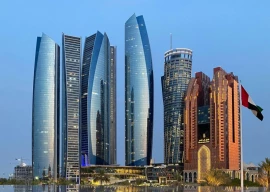


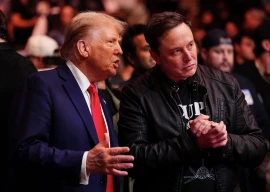
1737185197-0/Express-Tribune-(2)1737185197-0-270x192.webp)
1737188551-0/Untitled-design-(97)1737188551-0-270x192.webp)
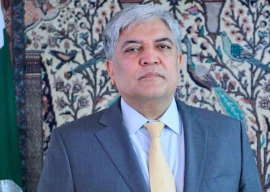
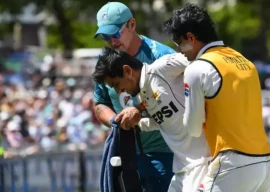
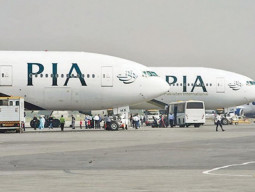
1737114296-0/Express-Tribune---News-Desk-(4)1737114296-0-270x192.webp)
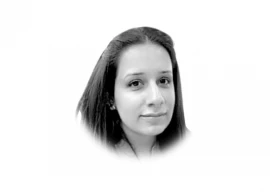





@sashayub: What do you mean to say? He was an influential person among the people in the south of the country. He was one of the key elders who tried hard drag the peace process into some momentum. The peace process that could change the fate of poor Afghans who have seen nothing but blood over the past four decades.
He was a drug baron! That was not a headache for the common Afghans. I want to make one thing clear; I have no affiliation with our government and nor with the International Community in Afghanistan, yet I feel deeply sad on his death. I know that he had helped out thousands of families in Kandahar in reuniting their beloved ones who were imprisoned in Guantanamo Bay Detention, Bagram and other prisons by the ISAF. He was a voice of the Kandahar and southern people which was easily heard by the arrogant Americans. He might have been on CIA payroll but he was not involved in slitting the throats of thousands of Afghan youngsters in the name of 'American Spies', he did not wrack havoc on the innocent laborers waiting for making a living in the main Shaheedan Square of Kandahar.
He was a ring of steel for the extremist thugs, the thugs whom you read Indian Spies and the enemies of Islam if they kill your own Pakistani brothers and; holy Mujahiddin and the Saviors of Islam if they blow themselves in a crowded market in Kabul. I know you Pakistanis will be celebrating his death and considering it a 'huge blow' to the Afghan government, from the strategic assets of your country. But don't forget that they [Afghan Taliban] are just another face of the picture. Don't forget that they don't differentiate between Pakistani or Afghan when they see their agenda at stake. Today, they are ruining us and tomorrow they will be knocking your door. The Pakistanis should have learnt a lesson from our fate and stopped being a supporter of the mischief in Afghanistan, but instead they overjoyed on our troubles.... I personally feel sympathy for the Pakistanis when hear about a bombing in Pakistan and I come to think that why have they started to destroy their own country by their very own hands?? Why are they becoming like us? Why are they adopting our fate....our bloody fate? Then, the other moment I start to think that this is nothing but the payback for the sins of their leaders who tried to meet the 'deepest strategic interest' in our country.
as you sow, so shall you reap...sad but true!